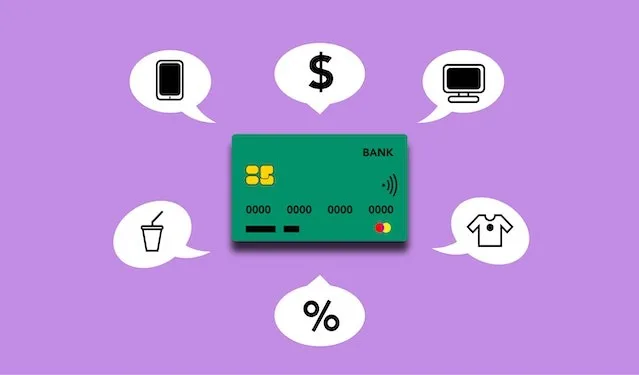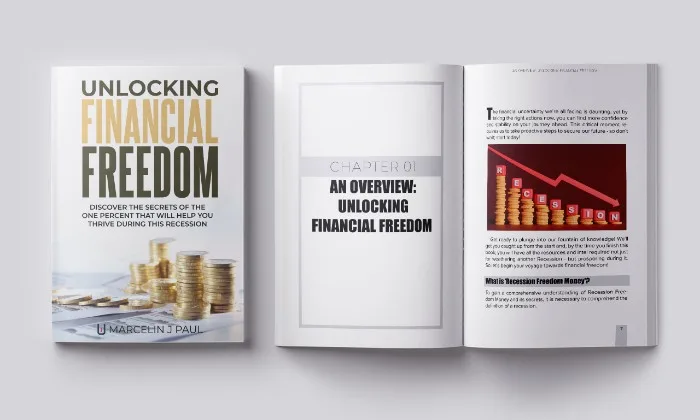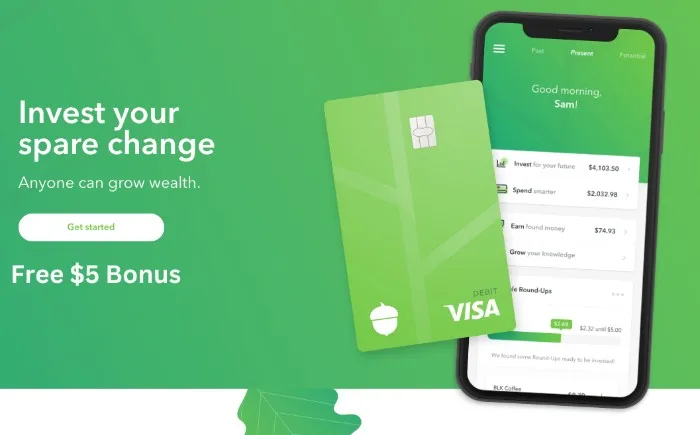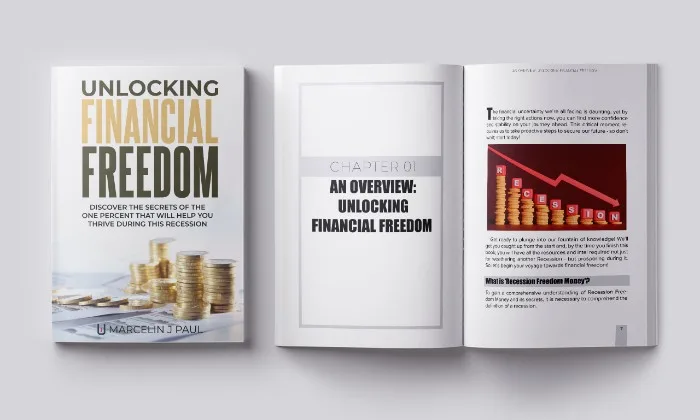What is financial freedom?
Financial freedom is a concept that’s heard frequently in the world of personal finance, but what does it truly mean?
Financial freedom is the luxury of having a steady flow of passive income that covers your fundamental needs, allowing you to not be reliant on traditional employment for your livelihood.
Therefore, one of the essential components in achieving this goal is being debt-free.
Importance of being debt-free in achieving financial freedom
Excessive debt is a major issue for many individuals, whether it’s credit cards, student loans, or mortgages.
Unfortunately, we often slip into the trap of overspending and end up carrying considerable amounts of debt that can cause immense distress as well as financial hardship and curtail our ability to build wealth.
It’s essential to be mindful when taking on more than you can handle financially in order to preserve your economic security.
Understanding Debt

Quashing debt requires a grasp of its fundamentals. Here are some essential insights to guide you toward becoming debt-free:
Types of debt: In life, debt can take on many forms.
Whether it be credit card debt, mortgage payments, car loans, or medical bills; each type of obligation has its own terms and conditions that vary in interest rates and repayment options.
Interest: Interest Rates are the cost associated with borrowing money.
The greater the interest rate, the more costly your debt is going to be.
Before taking on any debt, it’s essential that you comprehend how much interest will accrue and prioritize paying off debts with higher levels of Interest first.
Credit score: How financially responsible you are can be determined by your credit score a numerical representation of how reliable and trustworthy lenders consider you to be.
This figure is based on elements such as payment track record, the amount of debt versus available credit that has been utilized, and your past borrowing behavior.
Your rating will influence your capability to apply for new loans as well as determine what interest rate they offer.

Credit utilization: Your credit utilization is basically a comparison of your used to available credit.
This can have serious consequences on your credit score, so it’s vital that this ratio remains low.
For example, if you have a credit card with a limit of $5,000 and your balance is at $3,500 then your utilization rate will be 70%.
Ideally, it should not exceed 30%. By paying off outstanding debt, you can reduce this ratio which in turn will help improve your credit score.
Minimum payments: Making the minimum payment on your debt each month can help you avert late fees and penalties, but it will also extend the time for repayment as well as increase the total amount of interest paid.
Therefore, pay more than just “the bare minimum” to save yourself some money in the long run!
For instance, let’s say you have a credit card with a balance of $10,000 and an interest rate of 18%.
If you only make the minimum payment each month ($200), it would take you approximately 90 months and cost you over $17,500 in total.
But if instead, you were to make a payment of $300 per month, you could pay it off in only 35 months and save over $6,000.
Compound interest: Compound interest is when the sum of a loan or investment generates more money each period based on the total amount, rather than just from what was initially invested.
As time passes, it will become increasingly expensive because this newly generated income serves as an additional source for compounded interests to be taken.
Debt-to-income ratio: Is your debt overwhelming?
If so, you must know that your debt-to-income ratio is the amount of money you are using to pay off what you owe.
A high percentage can be a warning sign for creditors and show them how much financial pressure you may be under.
Knowing this information beforehand could save future headaches when applying for loans or other forms of credit.
Debt consolidation: Debt consolidation can be a great way to make repaying debt more manageable and help you save money.
Combining multiple debts into one single loan with reduced interest, allows you to pay your bills in an easier and more cost-effective manner.
Default: Missing loan payments as per the agreement has serious repercussions, including ruining your credit score and potential legal action.
Defaulting on a loan can have catastrophic implications if not addressed swiftly.
Credit counseling: Are you overwhelmed by debt and looking to turn your credit score around?
Credit counseling provides the perfect solution!
With guidance from a specialized counselor, you can craft an actionable plan that will help achieve financial stability.
From budgeting tips to evaluating options, they’ll work with YOU so that you have the right tools at your disposal.
Knowing these concepts can help you make wise financial decisions, regulate your debts with greater proficiency and eventually eliminate them.
It’s essential to be aware of the conditions attached to any debt that you take on, as well as to have a strategy set up for payment.
With this knowledge in hand, becoming free from obligations is achievable!
Download our free E-book today and start learning how to create wealth for yourself!

Strategies for becoming debt-free
Create a budget: The essential first step towards a debt-free life is to build up an organized budget.
This will assist you in gaining insight into where your money goes and how you can reduce expenses for the future and achieve financial freedom.
Build an emergency fund: Accumulating an emergency fund can prove instrumental in keeping you from being dependent on credit cards when unexpected costs crop up.
For the best preparedness, aim to save a minimum of 3-6 months’ worth of your necessary living expenses even 12 months if possible.
Dave Ramsey often speaks about this, and we couldn’t agree more.
Here is your first free $5 here from acorns to get started today and best of luck to you in your new journey out of the matrix.

Prioritize debt repayment: Eliminating debt can be done in two ways:
the snowball technique or the avalanche approach.
The former entails paying off your littlest debts first while the latter suggests you pay off debt with the highest interest rate.
Whichever method you select, ensure that it meets your needs and remain consistent with it for maximum results.
An example of how debt-free living can save money is by paying off credit card debt.
For instance, if you have a credit card balance of $10,000 with an APR rate of 18%, and make a minimum payment each month, it will take you over 10 years to pay off the balance.
In addition to this, you will also incur over $8,000 in interest payments.
If instead, you commit yourself to pay down the debt rapidly by making larger payments each month and getting rid of it within a year, you would save thousands in interest alone.
This is how debt-free living can save money.
By becoming debt-free, you are able to direct your earnings toward more useful and beneficial investments.
With the extra cash saved from not having to pay off high-interest debts, you can invest in stocks or other higher-yielding assets that will reward you with greater returns in the future.
Negotiate with creditors: By engaging in talks with your creditors, it is possible to secure a reduced interest rate or even settle the debt for less than its original amount.
Consider debt consolidation or debt relief options:
If your debt is too much for you to handle, it’s worth looking into the possibility of consolidating or finding additional relief options such as credit counseling and debt management plans.
Through these solutions, you can gain more control over your finances and be back on track in no time!
Increase income: Accelerate your debt repayment by augmenting your income – explore the possibility of taking on a side hustle or requesting a salary increase.
Read this related article here
40 Easy side hustles that anyone can do to make extra cash
Avoid new debt: When you are tackling your current debt, try to steer clear of taking on any new financial obligations.
Live below your means: To attain financial independence and liberate yourself from debt, it is essential to living beneath your means.
Refrain from lifestyle inflation, and prioritize investing as much money as you can while also saving for the future.
Seek professional help: If debt is weighing you down, take the proactive step to seek out a financial expert or credit counselor.
They can help guide you toward smart decisions that will reduce your debt and build your future financial freedom.
Read this related article here
What to do if you’re struggling with debt
Keep motivated: Achieving financial freedom is a lengthy process, so it’s essential to stay energized and appreciate the small victories throughout.
The benefits of being debt-free

More money To Invest: With the lack of costly interest payments, you will have extra money available to store away and put towards investments.
Doing so can aid you in building wealth and attaining financial liberty.
Improved credit score: By becoming debt-free, you can easily increase your credit score.
This is because when the amount that you owe relative to how much income comes in (your debt-to-income ratio)
Decreases and a pattern of punctual payments emerges – both of which are key factors in assessing one’s creditworthiness.
Reduced stress and financial insecurity: Don’t let high levels of debt cloud your stress and financial freedom.
Instead, become debt-free and gain the assurance that comes along with it – you’ll experience renewed peace of mind as well as improved financial stability!
Increased opportunities for financial growth:
Being debt-free opens the door to countless opportunities such as starting a business, investing in real estate, or furthering your education; without having to deal with high-interest payments.
To rid yourself of financial stress and gain control of your life is an opportunity not to be missed.
More financial flexibility: Lighter debt loads will enable you to make decisions that reflect your values and ambitions, granting you greater financial freedom.
More disposable income: Without the burden of high-interest debt, you’ll have more disposable income to spend on things that bring you happiness and fulfillment.

Retire Early: By eliminating the strain of high-interest debt, you will possess extra funds to save and invest in a way that could enable you to retire early without financial limitations.
With this newfound freedom, seize all opportunities and establish yourself as a financially secure individual.
Peace of mind: Achieving debt-free status gives a sense of satisfaction and security that cannot be matched.
You can breathe easier, knowing you don’t have to stress over managing your finances.
Better Relationship with money: When you reach debt freedom, your relationship with money can take a turn for the better.
You’ll no longer need to depend on credit and instead follow a more frugal lifestyle that fits in with what you have.
This is an excellent way of taking control of your finances and living within your means!
Freedom to choose: Shedding debt grants you the autonomy to make decisions that reflect your values and financial objectives, instead of being restricted by it.
Related Reading:
Saving Money Made Simple: Tips and Tricks for Budgeting Success
Good and bad debt
Understanding the difference between good debt and bad debt is paramount to managing your finances responsibly.
Making wise decisions in how you spend can be the deciding factor between setting yourself up for success or failure financially.
Beneficial debt is taken on for the purpose of investing in assets that could possibly increase in value or produce income.
For example, a home mortgage to live in can be seen as good debt, student loans with an opportunity to secure higher wages are beneficial, and borrowing money to launch or expand your business is considered advantageous.
Unlike good debt, bad debt is taken out to acquire items that lack the potential for appreciation or income.
Credit card bills resulting from retail purchases, car loans representing depreciating assets, and personal loans meant to cover non-essential expenses are all types of bad debt.
By comprehending the distinction between advantageous and detrimental debt, you can make informed decisions that positively affect your finances.
Making wise decisions when it comes to debt is paramount.
Good debt can be utilized strategically as a means of investing in assets that could potentially lead to financial growth, while bad debt will only result in added stress and restrict your capacity for future expansion.
Paying off unfavorable debts should take high priority, all the while staying mindful of beneficial interest rates on good debts and assessing if the investment will prove valuable or not.
Knowing the distinction between good debt and bad debt is essential for making sound financial decisions that will ultimately lead to greater financial independence.
Good debt entails borrowing money to purchase assets with potential appreciation in value or generate income, while bad debt pertains to acquiring items of no additional worth nor gainful returns.
Establishing this knowledge is vital for creating a successful monetary future!
Staying Debt-Free: Tips and Tricks

Congrats on the journey to financial freedom! To stay debt-free, here are some helpful tips and tricks:
Live sensibly: Oftentimes, people get into debt due to excessive spending and an inability to resist lifestyle inflation.
To prevent this from happening, be aware of your consumption habits and make sure you are spending less than what you earn.
Put the remainder towards savings accounts or investments for a more secure financial future!
Refrain from digging yourself deeper into debt:
Although it can be tempting to borrow more money for a lavish purchase or an unforgettable getaway, remember the dedication and hard work you put in to become debt-free.
Set aside funds instead so that when the time comes, you can pay outright with cash.
Prepare for the Unexpected: Protect yourself from financial setbacks by creating an emergency fund that consists of 3-6 months’ worth of living expenses.
This will be your safeguard against incurring debt in difficult times.
Position yourself for success: Investing in your learning and career trajectory is essential to reaching financial security.
Not only can it help you earn more, but also remain free of debt and gain true monetary independence.
Review Your Bills: Ensure that you’re not squandering your hard-earned money by double-checking all your current bills and subscription services.
Make certain to assess the coverage and see if it is necessary for you.
Avoid lifestyle inflation: As your salary increases, it can be easy to fall into a cycle of lifestyle inflation – spending more money as you earn more.
Unfortunately, this kind of habit could cause an increase in debt and should thus be avoided at all costs.
Be mindful of interest rates: Interest rates can drastically influence the amount of money you pay out for loans and credit cards, so it is essential to be mindful of such rates.
To save yourself as much cash as possible, make sure to select products with the lowest interest levels available.
Avoid unnecessary fees: Steer clear of extraneous fees from banks and credit companies by being aware of your payment due dates, as well as keeping an eye on your credit limit.
By doing this simple action you can save yourself a lot of money in the long run.
The Financial Freedom Formula
Achieving financial autonomy requires a blend of various techniques and equations, but one employed often is the “Financial Freedom Formula” which states:
Net Worth = Passive Income / Expenses
This basic yet potent formula emphasizes that financial freedom is attainable when your passive income surpasses your expenditures.
Here’s how it works:
Net worth: This is the total value of your assets (property, investments, savings, etc.) minus your liabilities (debts).
It’s important to note that your net worth is not the same as your income.
Passive income: The ultimate objective is to accumulate multiple streams of passive income that surpass your expenditures.
Examples are rental earnings, dividend payouts, and interest reimbursements – all without needing you to put in active work!
Expenses: This sum is the amount you need to sustain your lifestyle, including rent/mortgage payments, food staples, transportation costs, and other bills.
If you can raise your passive income and reduce your costs, you are one step closer to achieving financial independence.
Understand that attaining economic liberty is not a single-time occurrence; it’s an ongoing journey.
Therefore, keep analyzing and changing your plans regularly so as to guarantee that all of the hard work will pay off in the end!
If you want to gain control over your debt and make a brighter financial future for yourself, then follow the Financial Freedom Formula and the tips in this article.
It is never too late to begin your mission toward becoming debt-free in 2023; take action today!
Download our free E-book today and start learning how to create wealth for yourself!

Bottom Line
Achieving debt-free living is a critical action to unlock your financial independence.
Even though it can feel intimidating, with the correct approaches in place you have control of your debt and open up new doors toward a more prosperous future.
Are you eager to reach financial independence by becoming debt-free?
Start your journey today and begin with creating a budget, establishing an emergency fund, and selecting the right method of tackling your debts.
It’s never too late to start this life-changing mission – take that first step and enjoy the abundance of rewards it yields!
To maintain your debt-free lifestyle, you must be mindful of your spending and investments.
Achieving financial independence is simpler than it seems.
To stay on the right track, make sure to live within your means, abstain from taking on new debts, set aside money for emergencies, enhance educational and career prospects when possible, evaluate insurance rates regularly and monitor interest rates/fees closely – these are all easy ways to begin!
With the right resources, however, you can make great strides in your debt-free ambitions this year. Now is the time to start – don’t put it off any longer!
Take a confident stride towards attaining complete monetary independence in 2023; seize every opportunity available to ensure success on your path.
People also ask about Financial Freedom
Q: How long does it take to achieve financial freedom?
A: Although it might take years to reach financial freedom, depending on your current predicament and objectives, the most critical step is simply getting started.
Steadfastly making progress towards achieving your targets will eventually liberate you from debt and generate an ample passive income.
Q: Is financial freedom only about having a lot of money?
A: Financial freedom transcends money; it is about gaining the autonomy to do what you desire with your time and funds.
Attaining financial freedom implies that you can generate a sufficient income without effort so that you don’t have to rely on the typical nine-to-five job for support.
In other words, your passive income is enough to cover all of your living expenses.
Q: Can I achieve financial freedom on a low income?
A: Absolutely, it is possible to achieve financial freedom even with a low income.
It may take more perseverance and call for extra sacrifices along the way, but you can still get there.
The key lies in living wisely below your means; save and invest as much as feasible; then set your sights on boosting passive income sources.
Although this route might be longer than others, success awaits!
Q: Is it necessary to have multiple streams of income to achieve financial freedom?
A: Adding additional sources of income can contribute to attaining financial independence, however, it isn’t a prerequisite.
It is far more essential to prioritize increasing profits from your current streams and formulating new ones along the way.
Q: Can I achieve financial freedom if I have a lot of debt?
A: You can realize financial autonomy even with a substantial amount of debt.
Start by taking ownership of your debts and make a budget, build an emergency fund, and pick the best strategy for repaying them.
Once you are free from debt obligations, devote yourself to raising passive income in order to acquire lasting financial freedom.
Q: Is financial freedom the same thing as retirement?
A: No, financial freedom and retirement are not the same things.
Achieving financial freedom means having passive income that is sufficient enough to cover your necessary expenses, thus eliminating the need for a standard 9-5 job.
Retirement typically refers to the point in one’s life when they stop working and start receiving retirement benefits.
Financial freedom allows you to retire whenever you want, not just when you reach a certain age.














